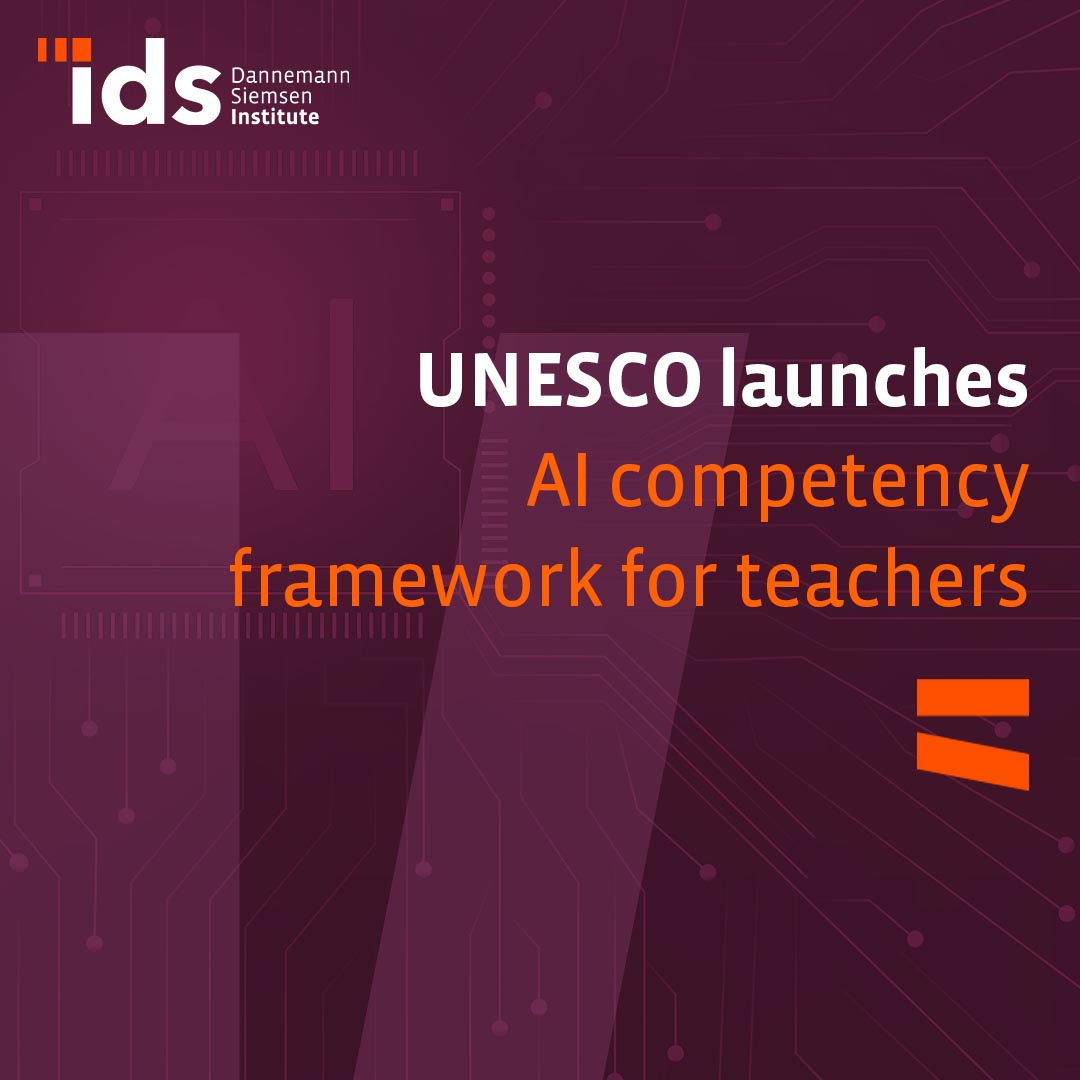09 de setembro de 2024
Share
UNESCO launches AI competency framework for teachers
On September 4, the United Nations Educational, Scientific and Cultural Organization (UNESCO) published a new document entitled “AI Competency Framework for Teachers” (AI CFT). The publication took place during the 2nd edition of Digital Learning Week, a forum promoted annually by UNESCO with a focus on digital learning and the transformation of education. The guide, part of the UN agency’s strategies in the field of education, aims to support teachers in developing skills related to the use of artificial intelligence (AI) tools. The aim is to enable these professionals to use AI tools in their academic practices in a safe, effective and ethical way. In this sense, UNESCO maintains that it is essential to protect teachers’ rights and guarantee adequate working conditions for them in the context of the growing use of AI in the education system, the workplace and society in general.
Firstly, the guide addresses its target audience, i.e. policy makers, teacher training providers, teacher unions, school leaders, teachers and education experts. At this point, it also states its specific objectives, which are: “to offer a reference framework that helps shape national, state-level or institutional AI competency frameworks or training programs for teachers; to provide an operational framework to teacher educators for the design and planning of training courses on AI; and to establish a benchmarking matrix for the assessment of teachers’ AI competencies and professional learning regarding the use of AI”.
The AI CFT then consolidates some principles by which it guides its provisions. These include ensuring an equitable and inclusive digital future in the age of AI; a human-centered approach to AI in education; protecting teachers’ right and interactively redefining their roles and competences; promoting reliable and sustainable AI for education; ensuring access to and literacy in AI for teachers; and supporting teachers’ continuous professional learning.
From this perspective, the document divides its structure into 5 aspects of competence: human-centered mindset; ethics in AI; foundations and applications of AI; AI pedagogy; and the use of AI for teachers’ professional development. UNESCO explains that aspects of competence are interconnected factors of knowledge, skills, values and attitudes that teachers need to develop to integrate AI into their teaching practices, in facilitating learning and in their own professional development.
These competencies can be developed according to 3 levels of progression. These levels act as gauges to assess, based on the 5 aspects of competence, the teachers’ starting point and outline the next level of learning objectives. At the initial level, teachers begin to acquire and use the most fundamental knowledge and skills for using AI. The second level assumes that teachers are proficient in integrating AI into their pedagogical practices, responsibly and in accordance with national and local legislation. In the last step of progress, UNESCO indicates that teachers should be able to have a critical understanding of the social impacts of AI, including contributing to the formulation of policies and ethical standards for the use of this technology.
The last chapter suggests some application strategies for AI CFT, such as the importance of constant monitoring of AI regulations to ensure the reliability of these tools in protecting students and teachers. Finally, it proposes training and guidance initiatives for teachers based on the provisions of the guide.
The UNESCO document can be accessed via the link: AI competency framework for teachers
Note: For quick release, this English version is provided by automated translation without human review.
